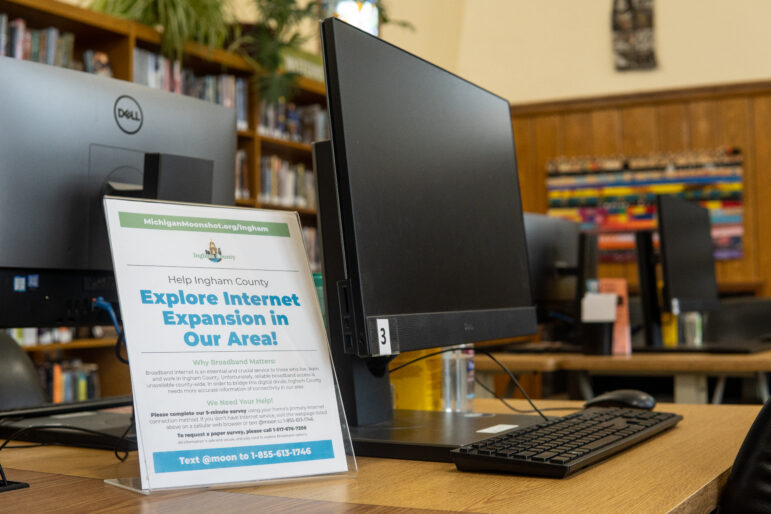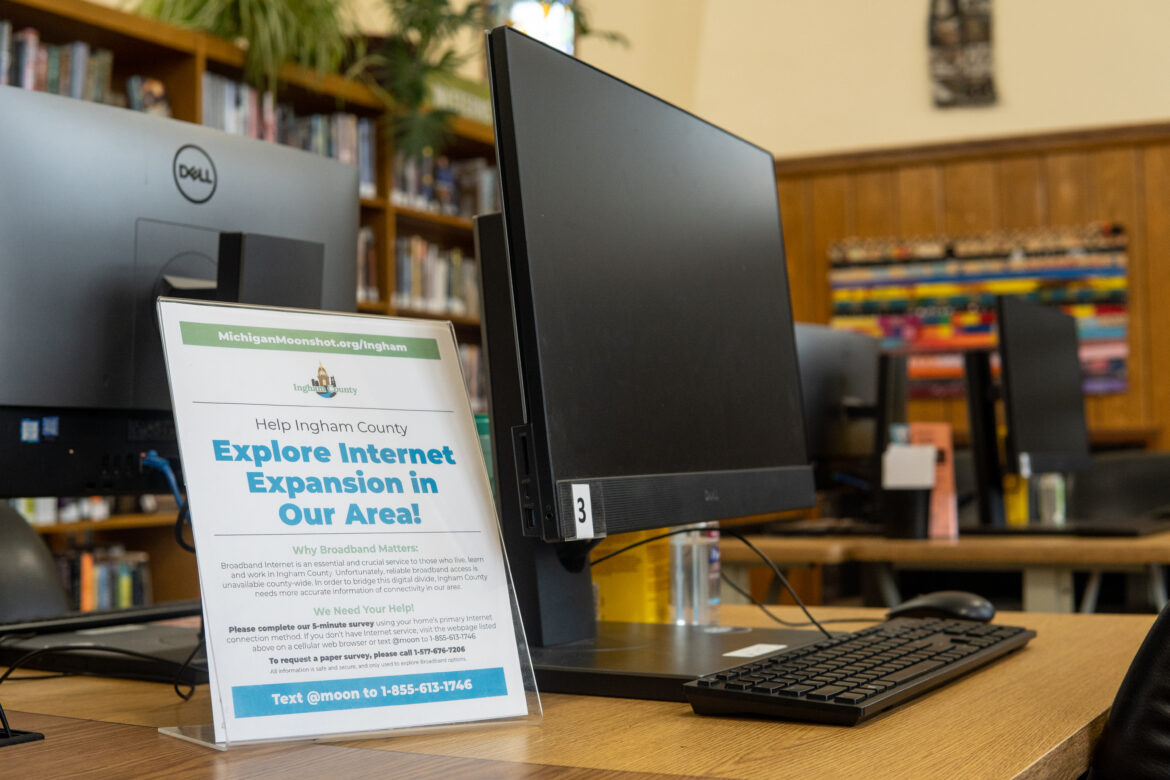
For Mason residents, consistent and reliable internet access is a luxury.
However, the city and new companies are bridging the access gap. The newest player is Comcast, and it hopes to light up nodes by the end of the year, according to Comcast Director of Government and Regulatory Affairs Ben Miller.
Comcast’s expansion into Mason stems from the company’s Greater Lansing Opportunity South Project, one of many projects being conducted in other areas around Lansing.
“We identified [Mason] as an area for growth potential about a year ago,” Miller said. “We then began the process of securing the necessary franchises and permits … from there we’ve done the walkout, the planning and we are in the process of building.”
Aerial and underground infrastructure is being added to the city with plans to touch each residential neighborhood.
City Clerk Sarah Jarvis says the city fields calls about internet issues regularly, but when it comes to helping, their “hands are tied.” The process by which additional providers enter the area is completely decided by those private companies.
“It’s hard because we want everyone to have the best service, but we just don’t have any control over the actual service,” Jarvis said.
While the city is unable to determine what companies decide to expand into the area, they still have services available for those dealing with internet issues.

Mason’s Capital Area District Library offers internet access through its on-site computers and free wifi access for members and non-members who have personal devices.
“Internet access is a very valued service in the community and each day there are people who come to the library who would otherwise lack it, but they can get it here,” library assistant John Takis said. “We have people who come to get access to the internet not just for recreational purposes but for professional services.”
The library lets members check out wifi hotspots, iPads and Chromebooks through its “Library of Things” for those who need internet access at home.
Currently, the main internet provider in the area is WOW!, and its internet coverage has been “hit or miss” according to residents, with complaints flooding local Facebook groups daily.
Robyn Simmons is a Mason Manor resident and has used WOW! Since she moved into the Mason area more than two years ago. Simmons purchased the internet service when the company offered a no-data-cap promise. But Simmons said as of last year WOW! has backtracked on that guarantee.
“The fact that our internet has a data cap on it is the most disgusting thing that someone can do in this day and age,” Simmons said.
Simmons, who works in customer service remotely, shares access with her two sons, who are currently in the eighth and 10th grades at Mason Public Schools, do a large portion of their homework on Google Classroom and stream content in their free time.
Since WOW! introduced a data cap, Simmons has had to tell her children to get permission if they want to download or stream media.
“The first month they had the data cap, we went through it really fast, so I ended up having to increase my service, which increased the cost of my service … The problem is when you’re doing that internet speed test you aren’t getting that speed from WOW!,” Simmons said. “You should at least be giving me the service you’re promising me.”
Simmons said her internet goes out two to three times a week and recalls times she has missed work completely or had to drive to McDonald’s and use its Wi-Fi to work from there.
In 2022 she and her children got COVID-19 during one of WOW!’s internet outages and she again had to use McDonald’s parking lot to make sure her children didn’t fall behind in school.
“The worst part about it is that I think they know that a part of Mason is locked behind their service, so they don’t really give us the care we need as consumers,” Simmons said.
Randy Forsythe, a biomedical engineer who works remotely on the Mason-Dansville border, has dealt with similar problems.
“Reliability is the big thing,” Forsythe said, “Any time it gets windy we have to worry that the internet will stop working.”
Forsythe has dealt with consistent outages of longer than 24 hours, and this past summer he had an outage that lasted more than two weeks.
He described trying to troubleshoot issues as experiencing a “complete and total lack of transparency” and said he often has to rely on third-party services such as Downdetector to see if there is an outage.
WOW! was contacted but did not respond to requests for comment before this story went to print.
As Comcast expands into Mason, the company hopes to solve some of the issues residents face.
“We certainly have great confidence in our network’s ability to deliver on advertised speeds both up and down,” Miller said. “We think that our service and maintenance is superior to anyone.”
Comcast will join WOW! as one of the largest providers in the area, along with digital subscriber line internet (DSL) offered by T-Mobile and AT&T.
Comcast will offer a full range of service tiers ranging from income restraint tiers starting at $9.95, which would be free to individuals that qualify for both the internet essentials and internet connectivity program.
But for residents like Forsythe in the most rural parts of Mason, this option may not be available, pointing toward a larger issue across Michigan and rural America.
At least 380,000 households—about 27%—with school-age children in Michigan lack access to broadband internet, according to Michigan Moonshot, a non-profit organization focused on bridging the digital divide in Michigan.
Comcasts’ growth beyond residential neighborhoods relies on grants for rural broadband because current expansion of infrastructure is being funded by its own capital expenditures, according to Miller.
These grants would most likely come from state funding, such as the ROBIN Grant Program, which is specifically for funding the internet connection of underserved areas and is worth $238 million. Submissions for the ROBIN grant are due in March.
